
Stefan Banach was a Polish mathematician who is generally considered one of the 20th century's most important and influential mathematicians. He was the founder of modern functional analysis, and an original member of the Lwów School of Mathematics. His major work was the 1932 book, Théorie des opérations linéaires, the first monograph on the general theory of functional analysis.

Andrzej Witold Wajda was a Polish film and theatre director. Recipient of an Honorary Oscar, the Palme d'Or, as well as Honorary Golden Lion and Honorary Golden Bear Awards, he was a prominent member of the "Polish Film School". He was known especially for his trilogy of war films consisting of A Generation (1955), Kanał (1957) and Ashes and Diamonds (1958).
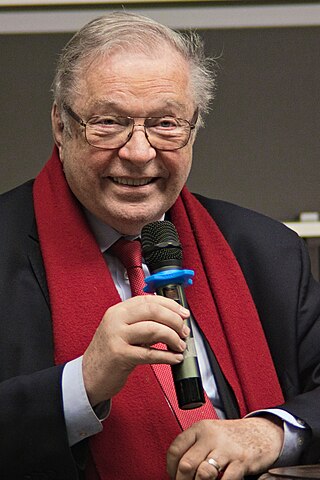
Krzysztof Pius Zanussi is a Polish film and theatre director, producer and screenwriter. He is a professor of European film at the European Graduate School in Saas-Fee, Switzerland where he conducts a summer workshop. He is also a professor at the Krzysztof Kieślowski Film School of the University of Silesia in Katowice.
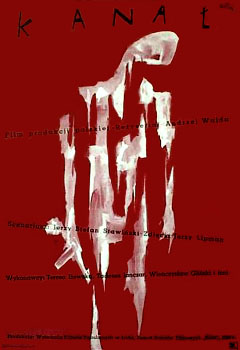
Kanał is a 1957 Polish film directed by Andrzej Wajda. It was the first film made about the 1944 Warsaw Uprising, telling the story of a company of Home Army resistance fighters escaping the Nazi onslaught through the city's sewers. The film is adapted from the story “They Loved Life” by Jerzy Stefan Stawinski. Kanał is the second film of Wajda's War Trilogy, preceded by A Generation and followed by Ashes and Diamonds.

A Short Film About Love is a 1988 Polish romantic drama film directed by Krzysztof Kieślowski, starring Grażyna Szapołowska and Olaf Lubaszenko. Written by Kieślowski and Krzysztof Piesiewicz, the film is about a young post office worker deeply in love with a promiscuous older woman who lives in an adjacent apartment building. The film is set in the capital of Poland - Warsaw.

The Hourglass Sanatorium is a 1973 Polish surrealist film directed by Wojciech Jerzy Has, starring Jan Nowicki, Tadeusz Kondrat, Mieczysław Voit, Halina Kowalska and Gustaw Holoubek. It is also known as The Sandglass in English-speaking countries. The story follows a young Jewish man who visits his father in a mystical sanatorium where time does not behave normally. The film is an adaptation of Bruno Schulz's story collection Sanatorium Under the Sign of the Hourglass. It won the Jury Prize at the 1973 Cannes Film Festival.
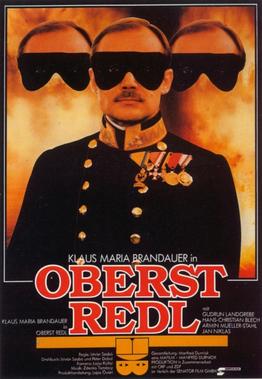
Colonel Redl is a 1985 biographical drama film by Hungarian director István Szabó. The plot, set in the period before World War I, follows the rise of Alfred Redl, an officer in the Austro-Hungarian Empire. Redl, who comes from a humble background, enters military school as a boy and an illustrious military career comes his way by virtue of his loyalty to the crown. He is appointed the head of an intelligence-gathering unit, but his attraction to men eventually causes his downfall.

Songs from the Second Floor is a Swedish black comedy-drama film which was released to cinemas in Sweden on 6 October 2000, written and directed by Roy Andersson. It presents a series of disconnected vignettes that together interrogate aspects of modern life. It uses quotations from the work of Peruvian poet César Vallejo as a recurring motif. The film was selected as the Swedish entry for the Best Foreign Language Oscar at the 73rd Academy Awards, but it did not make the final shortlist.

Witold Leon Julian Zglenicki was a Polish inventor, geologist, metallurgist, oil worker and philanthropist, He was a student of Dmitry Mendeleev, and called the "father of Baku kerosene" and the "Polish Nobel".

On the Silver Globe is a 1988 Polish epic science fiction film directed and written by Andrzej Żuławski, adapted from The Lunar Trilogy by his grand uncle, Jerzy Żuławski. Starring Andrzej Seweryn, Jerzy Trela, Iwona Bielska, Jan Frycz, Henryk Bista, Grażyna Deląg and Krystyna Janda, the plot follows a team of astronauts who land on an uninhabited planet and form a society. Many years later, a single astronaut is sent to the planet and becomes a messiah.

Bad Luck is a 1960 Polish black comedy film directed by Andrzej Munk. The screenplay is based on Jerzy Stawiński’s novel Six Incarnations of Jan Piszczyk (1959).

The Story of Sin is a 1975 Polish drama film directed by Walerian Borowczyk based on the novel Dzieje grzechu by Stefan Żeromski. It was entered into the 1975 Cannes Film Festival.

Burial of a Potato is a 1990 Polish drama film directed by Jan Jakub Kolski. It was screened in the Un Certain Regard section at the 1991 Cannes Film Festival.
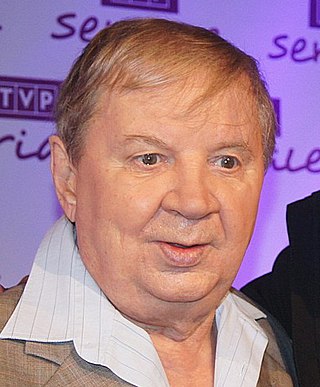
Roman Kłosowski was a Polish character actor and stage director.

Before Twilight is a 2008 Polish comedy drama film directed by Jacek Bławut.

Dekalog: Six is the sixth part of Dekalog, the drama series of films directed by Polish director Krzysztof Kieślowski for television, possibly connected to the sixth imperative of the Ten Commandments: "Thou shalt not commit adultery."
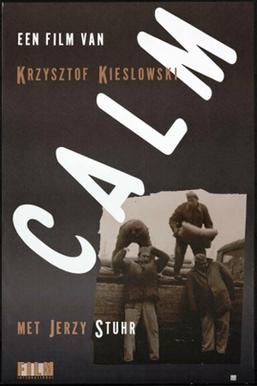
The Calm is a film by Polish director Krzysztof Kieślowski made in 1976 but not exhibited until broadcast on Polish television in 1980. It starred Jerzy Stuhr, Izabella Olszewska, and Jerzy Trela. Based on a story by Lech Borski and a screenplay by Kieślowski and Jerzy Stuhr, the film is about a young man who leaves prison after a three-year sentence seeking to start a new life. His dreams of a better life are broken, however, when he is forced into a conflict between a corrupt construction company boss and his fellow workers who go on strike. The Calm was filmed on location in Kraków and completed in 1976, but was banned by the state because of its subject matter—strikes were illegal in Poland during that time. The film was finally shown on Polish television for the first time on 19 September 1980. In 1981, The Calm received the Polish Film Festival Special Jury Prize.
The Polish Film Academy is a professional honorary organization dedicated to the advancement of the arts and sciences of motion pictures.
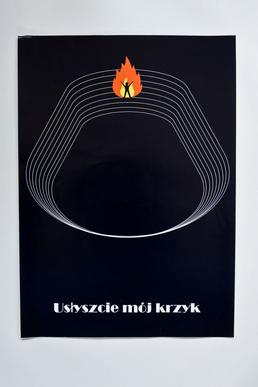
Hear My Cry, is a 1991 Polish documentary film directed by Maciej Drygas.

Tadeusz Bradecki was a Polish actor and stage director. He died on 24 January 2022, at the age of 67.



















